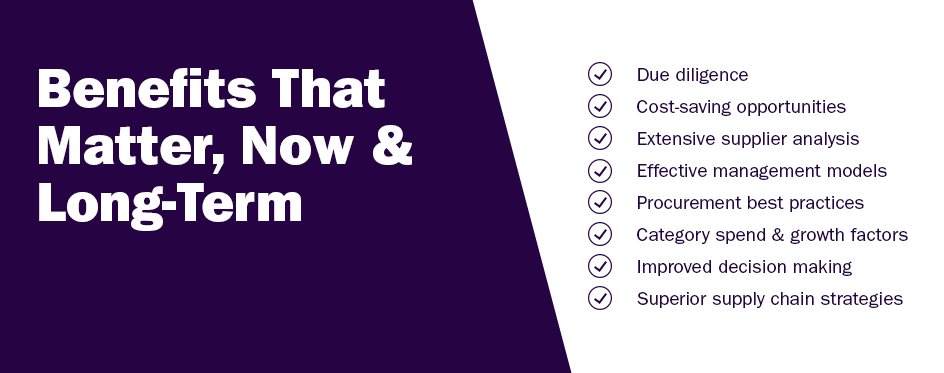Corn market growth is driven by government policies and subsidies, as well as changes in technology and manufacturing techniques
Corn Procurement Intelligence
The procurement of corn has turned out to be a growth enabler against the backdrop of the rising demand for processed meals, biofuels, and animal feed. The global market size stood at USD 297.27 billion in 2023. The demand for corn as a key component of animal feed is expected to expand in the coming years as global meat consumption is expected to increase. Almost all types of compound feed for animals, including ruminants, poultry, swine, and aquaculture, have corn as one of their main constituents. So, corn is frequently used to meet the rising demand for feed rations.
Production has increased as a result globally. In addition, it is used in the production of ethanol, a biofuel that can replace petrol. It is anticipated that concerns about pollution and climate change will increase demand for biofuels. Corn is a key ingredient in many processed foods, including cornflakes, corn chips, and tortillas. Because of the convenience and affordable cost associated with it, processed foods are projected to rise in popularity in the forecasted period, which will further drive the growth of this category.
Companies have upped their emphasis on organic and inorganic growth strategies, some of which are illustrated below:
-
In July 2023, Cargill and John Deere announced a collaboration to deliver new revenue streams for farmers who adopt sustainable farming techniques. Farmers will save time, have better data accuracy, and have an increasingly up-to-date, consistent, and complete understanding of their operation.
-
In October 2022, as part of the "One District, One Factory" project, Ghana's President, Nana Addo Dankwa Akufo-Addo, officially opened an ultramodern corn processing facility in Nsuta-Kwagye in the Sekyere-Central District of the Ashanti Region. The facility has state-of-the-art processing tools, including a grit milling machine, a corn drying plant, and many more.
-
March 2022, the Vorceed Enlist corn rootworm (CRW) trait technology from Corteva Agriscience has been introduced. It will give farmers more alternatives than any other seed corn product for managing CRW acres.
Several technologies are utilized in the corn industry to enhance production, processing, and distribution. Precision farming uses data collected from GPS, yield monitors, and soil sensors to help farmers make more informed decisions about how to manage their crops. It helps during post-harvesting as well by improving storage and processing mechanisms, such as the use of airtight storage bags to protect corn from pests and moisture. Storage and transportation technologies, such as grain silos, grain elevators, and refrigerated trucks are used to store and transport corn properly so that it does not spoil. Biotechnology has also enabled the development of genetically modified corn varieties that are resistant to pests and diseases. They can also be engineered to have higher nutritional content or to produce more ethanol for fuel.
Request a free sample copy or view report summary: Corn Procurement Intelligence Report
Corn Sourcing Intelligence Highlights
-
The number of both big and small businesses operating in various regions suggests the fragmented landscape of the corn industry. Players engage in an intense rivalry with one another to expand their consumer base and provide superior customer service.
-
Land, seeds, and transportation costs account for the largest cost component of the corn business.
-
Most companies offer services such as logistics, credit, where buyers can purchase without having to pay the full price upfront, and others.
Corn Procurement Intelligence Report Coverage
Grand View Research will cover the following aspects in the report:
-
Market Intelligence, along with emerging technology and the regulatory landscape
-
Market estimates and forecasts from 2024 to 2030
-
Growth opportunities, trends, and driver analysis
-
Supply chain analysis, supplier analysis with supplier ranking and positioning matrix, supplier’s recent developments
-
Porter’s 5 forces
-
Pricing and cost analysis, price trends, commodity price forecasting, cost structures, pricing model analysis, supply and demand analysis
-
Engagement and operating models, KPI, and SLA elements
-
LCC/BCC analysis and negotiation strategies
-
Peer benchmarking and product analysis
-
Market report in PDF, Excel, PPT, and online dashboard versions
Cost Intelligence Highlights
As part of the Corn Procurement Intelligence Report, Grand View Research has identified the following key cost components:
-
Seeds
-
Land
-
Fertilizers
-
Water
-
Pesticides
-
Labor
-
Transportation
-
Overhead Expenses
Land, seeds, and transportation costs form the largest cost components of corn.
Corn - Key Suppliers
-
Bayer AG
-
Corteva Agriscience
-
Syngenta Group
-
Satake
-
Bunge Global SA
-
Glencore plc
-
Cargill, Incorporated
-
Groupe Limagrain Holding
-
Archer Daniels Midland Company (ADM)
-
The Scoular Company
-
CHS Inc.
-
Ingredion Incorporated
Pricing & Purchase Options
Service Guarantee
-
Insured Buying
This report has a service guarantee. We stand by our report quality.
-
Confidentiality
Your transaction & personal information is safe and secure.
-
Custom research service
Design an exclusive study to serve your research needs.
-
24/5 Research support
Get your queries resolved from an industry expert.


